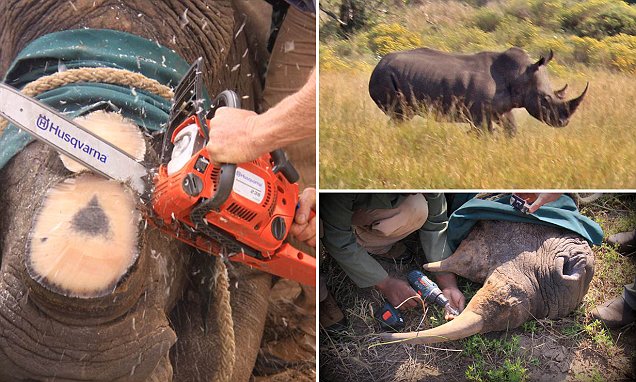The country’s Supreme Court of Appeal has made way for the legal domestic trade of Rhino horns

The South African government is considering a recent court ruling that would legalize the rhino-horn trade in the country for the first time in seven years, lifting a ban that had been imposed to reduce poaching.
The court announced the ruling last Friday, and on Tuesday the Minister of Environmental Affairs said it was “considering the implications of the judgment and will brief the public in due course.”
South Africa outlawed its internal rhino-horn trade in 2009 in an attempt to stop poaching, saying that any legalized trade, even domestic, will open the black market to unscrupulous international traders. In 2012, a rhino rancher sued the government to drop the ban––and last year it was joined by a second rancher. A South African court ruled against the government in 2015, and the government later appealed. Last week, the Supreme Court of Appeal denied the appeal.
The ruling applies only to domestic trade. It is still illegal to export rhino horns internationally, something that the Convention on International Trade in Endangered Species of Fauna and Flora––signed by 181 countries––has outlawed since 1977. Under the regulations stipulated by the court ruling, private buyers and sellers would need a permit from the government to buy or sell rhino horns.
“Given the levels of corruption in some provincial permitting offices, there are certainly concerns that legal domestic sales could become a conduit for criminal networks to obtain horns which can be smuggled out of the country and sold on the black market. We saw as much prior to 2009 when middlemen for Vietnamese syndicates traveled the length and breadth of the country buying up ‘loose stock’ of horns from game farmers.”
The lawsuit was backed by members of South Africa’s Private Rhino Owners Association, which Reuters reported own 5,000 rhinos collectively.
The South African government also has a stockpile of rhino horns, collected from its operations that remove the horns in hopes of preventing poaching. The government’s collection is valued at $2 billion.
Article by J. Westen Phippen.
Please SHARE to raise awareness. For regular updates and news please add your email details.

It’s a pity you don’t have a donate button! I’d most certainly
donate to this excellent blog! I suppose for now i’ll settle for book-marking and adding your RSS
feed to my Google account. I look forward to fresh updates and will talk about this
blog with my Facebook group. Talk soon! http://koojoote.de/item.php?id=1158&mode=1
LikeLike